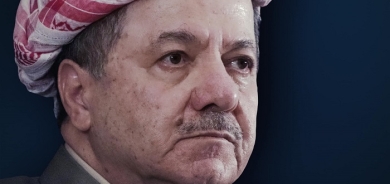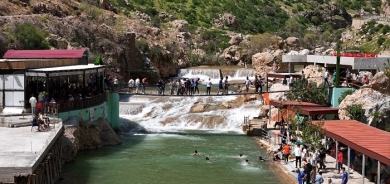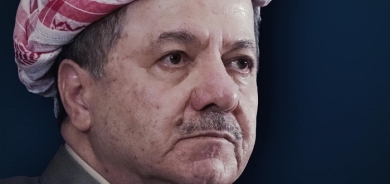Michael D. Driessen to Gulan Magazine:Syria risks civil war and civil war in Syria could drag other regional powers into the mix
March 5, 2012
Exclusive Interviews

The Professor Michael D. Driessen is Post-doctoral Fellow in Center for International and Regional Studies, School of Foreign Service in Qatar – Georgetown University \ Doha, Qatar. The Professor Driessen works on issues of Islam and politics and democracy, his regional expertise is mainly on the Maghreb, and especially on Algeria.We contacted the Professor Driessen to discuss the current situation in Syria and he replied to our questions in an exclusive interview to Gulan Magazine as shown bellow:* Syria's situation is really getting complicated, not only the fall of Assad's regime is expected, but also many bad scenarios are on the way of Syria. So, how do see the situation overall?
- I recently read an article in the journal of Foreign Policy which interviewed a number of Middle East experts on the state of events surrounding the Arab Spring. The experts were asked to rank the future of countries in the region according to a scale of optimism, and of all the countries of the Middle East today, this group overwhelming agreed that they were least optimistic about the future of Syria. They have many good reasons to be pessimistic. As you know, Syria risks civil war and civil war in Syria could drag other regional powers into the mix, including Israel and Iran, between whom tensions are already high, and if Israel and Iran begin a war, that could also mean the conflicting involvement of China and the United States. Samuel Huntington, in his infamous book "the Clash of Civilizations," predicted that a third world war might rapidly begin over just such a mix of political mishaps. So; things don't look good. And yet, everyone recognizes this, so where does it leave us? It leaves; I believe much of the ball in the court of inner-Syrian dynamics. How far will protestors push Assad? How much violence is Assad willing to employ? And what sort of deal would it take for him to hand over power? All of this is yet to be determined.
* On the regional, Arabic and international level there comes up an opinion that part of them supports remaining of Assad and the other part supports the fall of the regime. That means the interest of Syrian people is lost among the interests of others. So, to what extend the interests darken the future of Syria?
- On the one hand, you're right; they darken the future of the Syrian people. So far, the international community and even the Arab League have signaled that they will not forcibly intervene on the part of Syrian rebels. Again this leaves the ball in the court of Syrian domestic politics. It means that Syrian rebels cannot count on the overwhelming military help of the West in the near future. On the other hand, if we wanted to search for a silver lining in these circumstances, we could recognize that by clearly signaling that they will stay out of the conflict, international powers lessen the possibility of a regional war and that might be a good thing overall, given what such a war might look at. It also forces the rebels and Assad to keep thinking about other options, instead of rushing into an all-out violent confrontation with one another.
* The situation has reached a level that Assad's army is to withdraw from several places and demonstrators will take control of it. That means Assad is about to minimize the protection border of its regime and to give up some responsibilities. So, to what extend this policy of Assad will calm down the revolution?
- It is difficult to imagine that ceding power to demonstrators will calm down the revolution. Maybe in the short run, but they will most likely be encouraged to continue pressing Assad over the long run.
* If the areas under the control of demonstrators increase in number, to what extend international community will put an eye on them for security?
- If demonstrators clearly control a demarcated path of territory, this might provide grounds for a classic United Nations peace-keeping force to gain entry into the conflict, and, as was the case in Bosnia and Kosovo, freeze and secure gains by both the rebels and the Assad regime, buying time for the rebels, but also for Assad.
* The Arabic countries are about to send troops to Syria, this comes after they sent supervisors to Syria. So, according to your opinion; to what extend this attempt of Arabic countries is a reason for letting Assad to remain in power?
- Until the troops effectively are sent to Syria, it is difficult to answer this question. Undoubtedly, the Arab League has been flexing its muscle in Syria, and the monitoring mission and the banishment of the country from the Arab League were bold moves. Emir al-Thani of Qatar, who was the first to say that he was ready to send troops to Qatar, also seems to be the one pushing most to broker some sort of deal on Syria. I think that threatening the arrival of Arab troops is another ploy by al-Thani to put pressure on Assad to accept some sort of transfer of power. Assad, so far, has turned his back on many such opportunities. So it will be interesting to see how far the Arab League is willing to back up its words. In a post-Arab spring world, they might. But it would be a very bold move.
* Opposition had limited effect inside Syria and has not been able to unite the different branches of opposition. So, how far opposition must be active especially in the current situation?
- Especially because the opposition cannot count on international help in this moment, it must be that much more active in canvassing for a much more united front. There are certainly dark scenarios possible ahead for Syrian, but on this point, my hope, as always, is that faced with such a military imbalance, and with the moral might of their actions so extraordinarily on their side, that Syrian protestors might be able to create a sort of Egyptian groundswell of solidarity and a non-violent refusal of Assad. A non-violent Syrian rebel movement might be the best, strategic way for Syrian rebels to convince Syrians of all stripes to unite against Assad, totally disarm his legitimacy and avoid a civil war.
* Last Question: The expectations have been saying that the Syrian opposition still doesn't have a clear program for the future of Syria and doesn't recognize the right of Kurdish minority. So, how far this will be on the level of expected changes in Syria?
- Again, I think it is both strategically and morally in the best interests of the Syrian opposition to create an integral, inclusive movement, and making big overtures to the Kurdish minority could be a powerful, symbolic gesture that might unleash the deeper solidarities of the nation.















